VIRTUAL EVENT: UCL IRDR 10th Annual Conference: COVID-19 Pandemic – A Global Perspective
15 July 2020, 10:00 am–6:00 pm
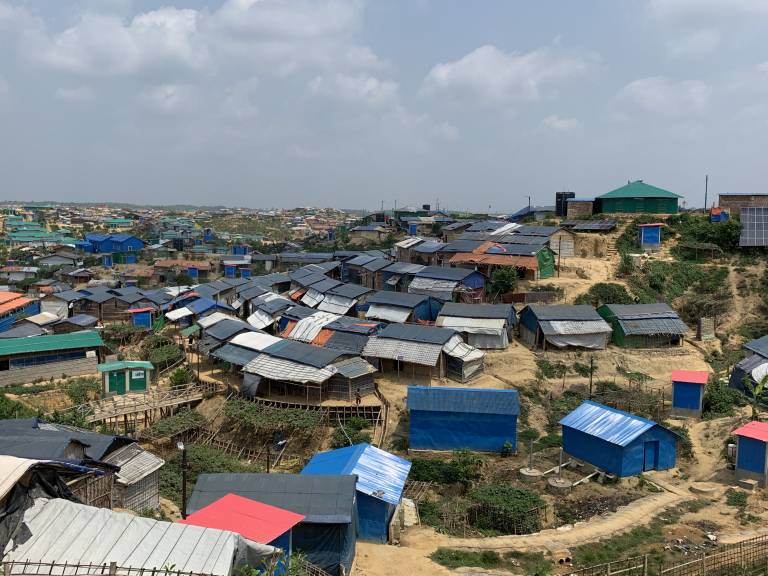
A day of thought-provoking talks, interactive discussions and online networking opportunities, where experts will present on the COVID-19 pandemic viewed from around the world and how it has impacted women, minorities, refugees, migrants and vulnerable communities, hosted by the Institute for Risk and Disaster Reduction.
This event is free.
Event Information
Open to
- All
Availability
- Yes
Cost
- Free
Organiser
-
Dr Bayes Ahmed – UCL Institute for Risk and Disaster Reduction
The UCL Institute for Risk and Disaster Reduction welcome researchers, students, practitioners, policymakers, the media and the general public to a day of thought-provoking discussions on how the COVID-19 pandemic is impacting vulnerable groups, communities and countries and the necessary changes to emergency management policies and strategies to better manage the current crisis and better prepare for the next. Our in-house and guest experts will present a global perspective on the latest research and analysis through talks, interactive discussions and in conversation. We will explore multi-dimensional aspects of the crisis, considering their physical, social, economic, environmental, institutional, political, cultural and gendered dimensions.
Conference Programme:
09:00 - 10:00 Conference digital platform login on Zoom
10:01 - 10:10 Welcome speech by Professor Peter Sammonds, Director, UCL IRDR and introducing the UCL-IRDR COVID-19 Observatory
10:11 - 10:15 Conference inauguration [Convener: Dr Bayes Ahmed]
10:16 - 11:45 Panel discussion 1: Global Perspective on the COVID-19 Pandemic [Moderator: Professor Peter Sammonds]
11:46 - 12:00 Tea break (with networking on Zoom)
12:01 - 13:00 Keynote speech: Marc Gordon, UN Office for Disaster Risk Reduction (UNDRR): The systemic nature of risk and the COVID-19 pandemic [Moderator: Dr Bayes Ahmed]
13:01 - 14:00 Lunch break (with networking on Zoom)
14:01 - 15:00 In conversation with The Rt Hon Hilary Benn MP [Moderator: Christopher Gunness]
15:01 - 16:30 Panel discussion 2: COVID-19 and the Health of Refugees, Migrants and Minorities [Moderator: Prof Bernadette Kumar]
16:31 - 16:45 Tea break (with networking on Zoom)
16:46 - 17:30 IRDR PhD and MRes Research Showcase [Moderators: Myles Harris and Xiao Han]
17:31 - 18:00 Masters Meet and Greet with IRDR Staff and Students for applicants and offer holders [Moderator: Dr Gianluca Pescaroli] (Invitations to a separate Zoom meeting will be sent directly to applicants)
Sessions
Panel discussion 1: COVID-19 Pandemic – A Global Perspective
- Overview
In the media, there is a ghoulish comparison of International death rates caused by the Coronavirus pandemics that translates into moral judgements on governments, countries and peoples. The UK is judged to have done particularly badly. Death rates amongst the elderly in care homes has been shocking. But ethnic minorities have also been disproportionally impacted. There is an important gender perspective too as women disproportionately have shouldered caring and home-schooling responsibilities. But there has been little real analysis or international comparison beyond the simplistic headlines. To open up a proper debate the IRDR has assembled an international panel with knowledge about the crisis from the UK, Italy, China, Nepal, and Bangladesh.
In particular, the panel will review how the pandemic has impacted countries differently around the world including the UK, Italy, China, Nepal, and Bangladesh which have all imposed lockdowns to varying degrees but with different outcomes. The panel will try to address:
Has a ‘command and control’ disaster management response been effective?
How have women been impacted? Is the pandemic a major set-back for women’s equality?
Minorities in the UK have been disproportionately impacted. How have these played out in other countries?
What different approaches have been taken to shielding vulnerable communities, and elderly in care homes in particular?- Moderator: Professor Peter Sammonds, UCL Institute for Risk and Disaster Reduction
- Professor Peter Sammonds is Director of the UCL Institute for Risk and Disaster Reduction and Professor of Geophysics. He works at the interface of natural and social sciences. His research and knowledge exchange is on natural hazard risks, disasters and recovery and he has worked on earthquake mechanics, volcanoes and ice physics in the Arctic. He works on research council, British Academy and Royal Society-funded projects on Increasing Resilience to Environmental Hazards in Border Conflict Zones and Resilience Futures for the Rohingya Refugees. He has advised the UK research councils on the increasing resilience to natural hazards programme; been a member of EEFIT Earthquake Engineering Field Investigation teams, contributing to inter-disciplinary reports on disaster, taken up widely by government for policy advice; and been a Commissioner on the UCL–Lancet Commission on Migration and Health, 2017–18, whose report has been influential. He is currently the Gender and Intersectionality Ambassador for the UKRI network+ Gender Responsive Resilience & Intersectionality in Policy and Practice (GRRIPP) project led by the IRDR Centre for Gender and Disaster.
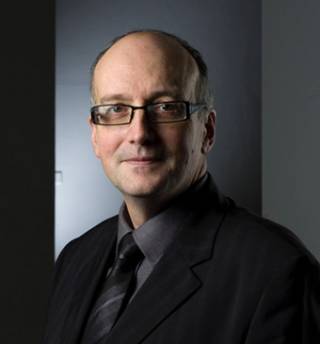
- Professor David Alexander: Critical Role of Emergency Planning in the COVID-19 Crisis
- David Alexander is Professor of Risk and Disaster Reduction at UCL. He teaches emergency planning and management. His books include "Natural Disasters", "Confronting Catastrophe", "Principles of Emergency Planning and Management", "Recovery from Disaster" (with Ian Davis) and "How to Write an Emergency Plan". He is the founding Editor-in-Chief of the International Journal of Disaster Risk Reduction, and Vice-President of the Institute of Civil Protection and Emergency Management. His research interests include natural hazards, earthquake disasters and emergency planning and management. He is currently working on a new book on emergency management, a companion to his recent emergency planning volume.
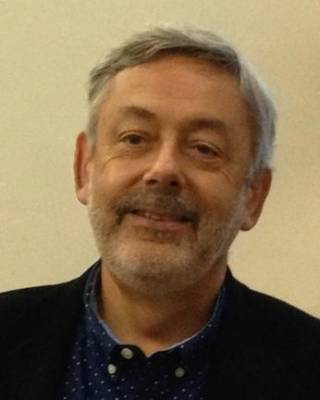
- Professor Imtiaz Ahmed: COVID-19 and Global Politics
- Professor Imtiaz Ahmed was born in Barisal, Bangladesh, and is Professor of International Relations and Director, Centre for Genocide Studies at the University of Dhaka. Professor Ahmed was educated at the University of Dhaka, The Australian National University, Canberra, and Carleton University, Canada. He is also currently Visiting Professor at the Sagesse University, Beirut. Professor Ahmed is the recipient of various awards and honours. He has authored, co-authored, or edited 26 books and eight monographs. More than 120 research papers and scholarly articles have been published in leading journals and chapters in edited volumes. His recent publications are the following edited books: Genocide and Mass Violence: Politics of Singularity (Dhaka: Centre for Genocide Studies, University of Dhaka, 2019); The Rohingya Refugee Crisis: Towards Sustainable Solutions (Dhaka: Centre for Genocide Studies, University of Dhaka; BRAC University: Centre for Peace and Justice; ActionAid, 2019); and Women, Veiling and Politics (Dhaka: University Press Limited, 2020)
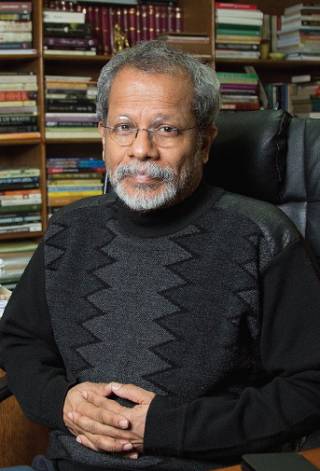
- Dr Punam Yadav: COVID-19 and Gender
- Dr Punam Yadav is Lecturer in Humanitarian Studies and Co-director of the IRDR Centre for Gender and Disaster. She is also the Co-Investigator for the UKRI Collective Fund award Gender Responsive Resilience and Intersectionality in Policy and Practice (GRRIPP) Network Plus (2019-2023). From June, Dr Yadav will be starting her Lectureship in Humanitarian Studies in the new BSc programme on Global Humanitarian Studies. Dr Yadav coordinates an MSc module, ‘IRDR0016 Gender, Disaster and Conflict’. She joined the IRDR in April 2018. Prior to this, she was Research Fellow in the Centre for Women, Peace and Security and Teaching Fellow in the Department of Gender Studies at the London School of Economics and Political Science. Dr Yadav completed her PhD from the University of Sydney in December 2014. Dr Yadav's research interests include gender, conflict and disaster; gender and development; women, peace and security; impacts of conflict on women including sexual violence; gender and transitional justice; conflict-induced internal displacement, conflict sensitive programme management; gender analysis, gender planning and mainstreaming, women's reproductive health and rights; sex-selective abortion, and abortion rights, South Asia, Africa, Latin America and the Caribbean (LAC) region, and Nepal.

- Dr Hui Zhang: COVID-19 Pandemic and Perspectives from China
- Dr Hui Zhang is an Associate Professor in the School of Public Administration at Guangzhou University, China. She is the deputy director of the Southern China Disaster Research Center. She received her BSs, MSs and PhD in Huazhong University of Science and Technology (HUST). Her PhD research focused on building disaster resilience in Chinese urban communities. She held a Postdoctoral position at Keio university working on post-disaster reconstruction in Fukushima. She was one of the first foreign scholars to enter Fukushima's radiation-contaminated zone after the disaster. She also conducted research on long-term disaster recovery in Wenchuan, China. Her interests focus on sustainable disaster recovery, disaster preparedness, early warning system and community resilience. Her current research is supported by the National Social Science Foundation of China and the National Natural Science Foundation of China.
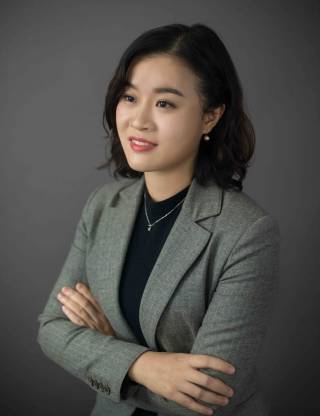
Keynote speech: The systemic nature of risk and the COVID-19 pandemic
- Moderator: Dr Bayes Ahmed
- Dr Bayes Ahmed is Lecturer in Risk and Disaster Science in the UCL Institute for Risk and Disaster Reduction. His background includes research into the field of disaster risk reduction (DRR), conflict and migration, climate change adaptation, community vulnerability and resilience, and climate justice. He works in the intersection between conflict and disaster with a vision to help improving the living standards of forced migrants and stateless population. He teaches quantitative and qualitative research methods, application of geographic information system (GIS) and remote sensing in disaster science, risk-sensitive land use planning, and landslides. He is passionate about working with grass-root people to understand their disaster vulnerabilities and producing effective policy recommendations to address their problems. He dreams of a world full of peace, prosperity and happiness.
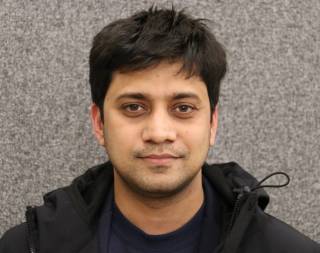
- Marc Gordon, UN Office for Disaster Risk Reduction (UNDRR)
- Marc Gordon heads the Global Risk Analysis and Reporting Unit in the UN Office for Disaster Risk Reduction (UNDRR). He is the Coordinator and Lead Author of the Global Assessment Report (GAR) and is leading the development of the Global Risk Assessment Framework (GRAF). He Co-Chairs the Risk Modelling Steering Group of the Insurance Development Forum (IDF), is a member of the Governing Board of the Global Earthquake Model (GEM) and serves in advisory capacities for numerous programmes, projects, collaboratives and initiatives.

From 2012 – 2017 he headed the UNISDR Sendai Framework Monitoring Unit and from 2006 – 2012 he established and led the UNISDR Donor and Business Partnerships Unit. Prior to this, he was the Manager of the Disaster Preparedness and Prevention Programme (DIPECHO) - South East Asia of the European Commission, operating out of Bangkok. From 1997-2003, he served in various capacities from Country Director to Emergency Officer, with both the United Nations & the International Non-Governmental sector in conflict, complex emergencies, political and chronic crises. Relevant field experience includes Cambodia, DR Congo, Côte d’Ivoire, Rep. Guinea, Indonesia, Lao PDR, Myanmar, Philippines, Sierra Leone, Sri Lanka, East Timor and Viet Nam.
In conversation: The Rt Hon Hilary Benn MP
- Moderator: Christopher Gunness
- Christopher Gunness is an award-winning journalist. He previously served as the spokesperson for the UN peace-keeping force in the Balkans and the chief spokesperson for the United Nations Relief and Works Agency for Palestine Refugees in the Near East. He worked for the BBC as a producer, reporter, foreign correspondent and news anchor for 23 years.
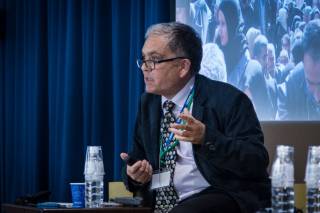
- The Rt Hon Hilary Benn MP
- The Rt Hon Hilary Benn is the Labour Member of Parliament for Leeds Central. Previously, he served as International Development Secretary, as a Minister in the Home Office, as Secretary of State at the Department for the Environment, Food and Rural Affairs, as the Shadow Leader of the House of Commons, the Shadow Secretary of State for Communities and Local Government and the Shadow Foreign Secretary. He was elected Chair of the Exiting the European Union Select Committee in October 2016. Mr Benn was born in London in 1953 to Tony and Caroline Benn. He attended Holland Park Comprehensive School and Sussex University. He served as Deputy Leader of the Labour Group for nine years and was Deputy Leader of the Council from 1986-1990. He was also a member of the Association of Metropolitan Authorities Education Committee and the Labour Party’s Education Forum. June 2001, He was appointed as Parliamentary Under-Secretary of State for International Development. Between May 2002 and May 2003, he was Parliamentary Under Secretary of State for Community and Custodial provision at the Home Office. Following the 2010 General Election, Mr Benn became Shadow Leader of the House of Commons before being appointed as Shadow Secretary of State for the Department of Communities and Local Government in October 2011. He was then appointed Shadow Foreign Secretary following the 2015 General Election. In October 2016 he was elected as Chair of the newly formed Exiting the European Union Committee..

Panel discussion 2: COVID-19 and the Health of Refugees, Migrants and Minorities
- Overview
This session will discuss how the novel Coronavirus (COVID-19) pandemic is disproportionately affecting the health of migrants, refugees and minorities globally. Particularly, speakers will outline some of the main challenges and risks for these populations during the pandemic, using regional/country case studies and examples from academia, policy and practice. In the second half of the panel, speakers will propose practical recommendations and approaches for how best to move forward to ensure that during the rest of the pandemic and in the post-COVID-19 phase, our societies are migrant-inclusive and that we place minorities and marginalised groups at the centre of research and policy responses. This panel is organised by Lancet Migration (www.migrationandhealth.org).
- Moderator: Professor Bernadette Kumar
- Professor Bernadette Nirmal Kumar, a medical graduate from St. Johns Medical College, India, has a doctorate in Epidemiology and Public Health from the University of Oslo, Norway and post-doctoral research fellowship at the Institute for Psychiatry, University of Oslo. Kumar has several years' international experience working for UNICEF, WHO, WFP, World Bank and NORAD in Southern Sudan, Somalia, North West Kenya, West Bank and Gaza, North Korea, China and Bhutan (1989-2000). She was appointed Director of NAKMI (the Norwegian Institute of Public Health, 2010) and Associate Professor, Global Health at the Institute for Health and Society, University of Oslo (2013). She is Professor at the Empower School of Health, India, Affiliated Professor at Kathmandu University and Affiliated Professor at Institute of Crisis Management Studies (ICMS) Tribhuvan University Nepal. Kumar leads the Migration Health work package of the EU Joint Action on Health Inequalities, the President of the EUPHA section of Migration and Ethnic Minority Health (2018-) and Chair of the Global Society on Migration, Ethnicity, Race and Migration. She has been a commissioner of the Lancet Commission on Migration and Health (2018) and is co-chair of Lancet Migration.
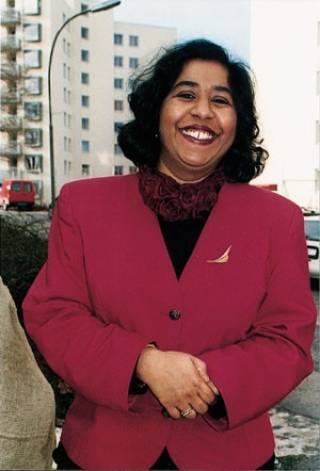
- Dr Julian Alfredo Fernandez Niño
- Doctor of Medicine, Master in Public Health, Master of Science in Biostatistics and Doctor of Science in Epidemiology from the same institution. Since 2017, he has been a full-time professor at the Department of Public Health of the Universidad del Norte in Colombia. He has worked in various research projects on mental health in vulnerable populations in Mexico and Colombia. Her areas of interest include statistical analysis applied to public health, social epidemiology, mental health, aging and, more recently, the relationship between migration and health. He is currently the coordinator of the Migration and Health Network in Colombia. In the last year, Dr. Fernández has led research projects on the health status of Venezuelan migrants in urban settlements, the collaborative design of information, education and communication strategies on migration and health issues, characterization of the health risks of pregnant migrant women as well as community strategies to prevent Gender based violence against migrant women in the Colombian Caribbean.
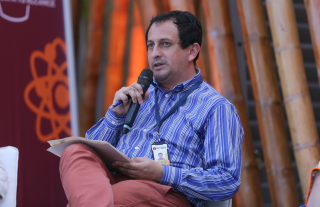
- Dr Davide Mosca
- Dr. Davide T. Mosca is a medical doctor with more than 35 years’ experience in global health, humanitarian response, and emergencies. A former Director of Migration Health at the International Organization for Migration (IOM) – the UN Migration Agency – he has worked 24 years in Africa and the Middle East first as a surgeon and emergency specialist, shifting later to public health. Dr. Mosca was one of the Commissioners of The UCL-Lancet Commission on Migration and Health, he is a Consultant to WHO, and has founded the advocacy network Realizing Health SDGs for Migrants, Displaced and Communities. Dr. Mosca is contract professor with various Universities, a Honorary Associate Professor at the UCL Institute of Global Health, and an affiliate with the Center for Humanitarian Health, John Hopkins Bloomberg School of Public Health.
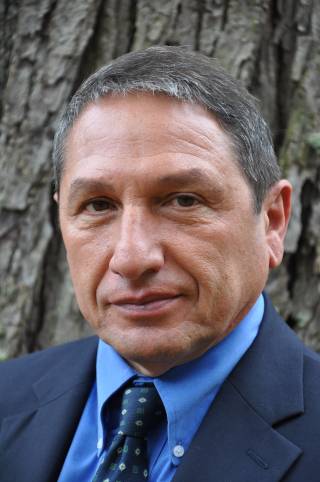
- Professor Raj Bhopal
- Professor Raj Bhopal was born in India, brought up in Glasgow and studied medicine in Edinburgh University. He is a medically qualified Professor of Public Health in Edinburgh University, holding the John Usher Chair of Public health and the post of honorary consultant in public health with NHS Lothian from 1999 until he retired in May 2018. He is now Emeritus Professor of Public Health at the University of Edinburgh. Earlier, he held posts including Professor of Public Health and Epidemiology at Newcastle University, and prior to that Lecturer in Public Health at Glasgow University.
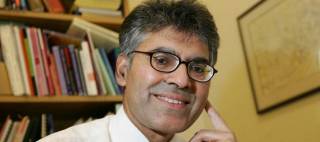
His books include Concepts of Epidemiology, Migration, Ethnicity, Race and Health, and Epidemic of Cardiovascular Disease and Diabetes: Explaining the Phenomenon in South Asians Worldwide (all Oxford University Press). Raj is a patron of the charity, the South Asian Health Foundation.
He has published on many aspects of public health epidemiology, with about 300 research and scholarly papers. He has served on numerous organisations and committees, been the leader of many research projects, and taking on leadership roles in the NHS.
He was the leader of the 19th World Congress of Epidemiology 2011, and the first World Congress on Migration, Ethnicity, Race and Health in 2018, both in Edinburgh.
Professor Bhopal has enjoyed several honours and prizes, most notably being appointed CBE (Commander of the Most Excellent Order of the British Empire) in 2001.
- Guppi Bola
- Guppi Bola is an organiser, trainer, educator and writer with over ten years of experience supporting organisations in their campaigns and research work around social justice. She is currently Chair of the Joint Council for the Welfare of Immigrants (JCWI). She has worked in Oxfam GB, New Economics Foundation, New Economy Organisers Network, Quakers in Britain and recently finished a role as Interim-Director of Medact. Guppi worked briefly at Joint Council for Welfare of Immigrants in 2018 tackling the hostile environment in the NHS - may be the best 6 months of her campaigning career.
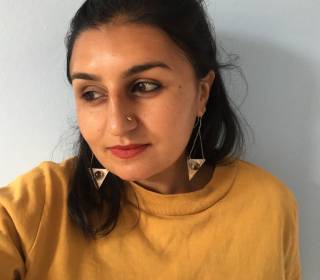
Her academic background is in public health and professional work has focused on economic justice and climate action. She is the co-founder of Healthy Planet (health students climate campaign), UK Youth Climate Coalition, and most recently Working on Our Power - a leadership programme for non-binary/women of colour in Europe. She is also one part of double trouble duo Decolonising Economics - bringing a deeper analysis of Britains colonial history to conversations around racial inequality.
Guppi led 40,000 people through London on a climate march atop a chip-fat fuelled double-decker bus. You can find out more about at www.guppibola.com - Aurélie Ponthieu
- Aurélie Ponthieu has been working for Médecins Sans Frontières (MSF) since 2006. She has been working as Humanitarian Specialist for MSF in Brussels since 2011 and is the Coordinator of the Forced Migration Team in the Analysis Department since 2017. Her area of expertise includes forced migration and the humanitarian impact of asylum and migration policies. She provides support to MSF operations in terms of context analysis, positioning and advocacy strategies. She has been recently working on COVID-19, advising the MSF emergency response in Brussels and as an Emergency Coordinator in Ecuador. Before working at MSF in Brussels, she worked in the field with MSF for 5 years in Niger (2006), Sudan (2007-2008), Chad (2008), Colombia (2009) and Haiti (2010). She also worked during Ebola outbreaks in Liberia in 2014 and in the DRC in 2019.

IRDR PhD and MRes Research Showcase. Moderators: Myles Harris and Xiao Han
- Overview
Online pre-recorded video presentations on disaster risk reduction research projects of incredible breadth and diversity from around the world.
 Close
Close

